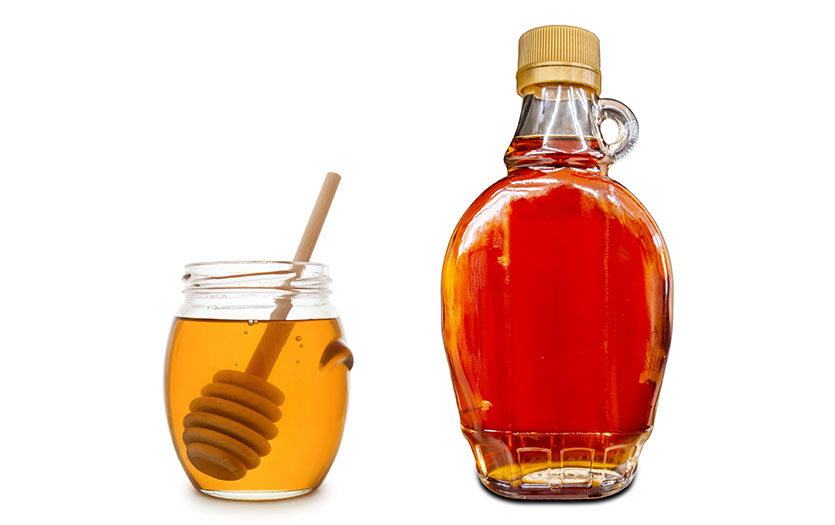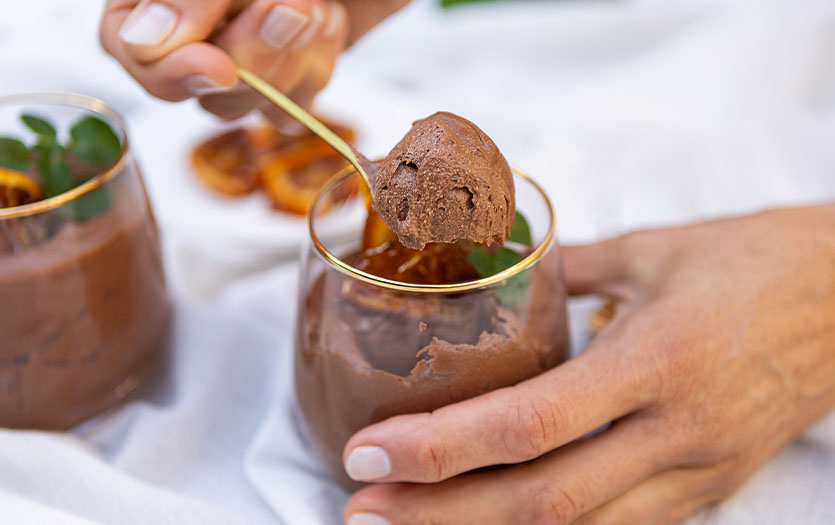
This post was written by Hannah Bercot, RDN, CD, community outreach dietitian, Parkview Community Greenhouse and Learning Kitchen, and Olivia Clark, RD, CD, clinical dietitian, Parkview Regional Medical Center.
With the pandemic and recent outbreaks like seasonal influenza and other respiratory infections, many are wondering what they can do to help build up their immune systems. Most of us know that we need to drink plenty of water, get adequate rest, exercise regularly, wash our hands frequently and consume a healthy diet. But what foods should we be focusing on and how much? In this post, we will review what fruits and vegetables are the best immune system boosters along with some guidelines that are science-based and proven to help build up our immunity. That way, when you encounter sick co-workers, friends or family, your body will have the tools it needs to fight off infection.
Excellent antioxidants
Berries and citrus fruits are great for your immune system! Berries contain a phytochemical called ellagic acid that is a powerful immune booster. Other food sources containing this protective compound are pomegranates, green tea, walnuts and pecans. Here are a few quick tips on these immune-boosting foods:
- Pomegranates: When it comes to pomegranates, purchase the fruit instead of juice whenever possible. The juice will never have the same fiber and fiber types that the beneficial bacteria in your gut need to survive.
- Green tea: Green tea, contains a compound called epigallocatechin gallate (EGCG) which is immune-boosting and matcha (ground green tea leaves) is more nutritious than steeped green tea leaves because it contains the whole leaf.
- Walnuts: Walnuts and pecans are a good source of vitamin E and great for boosting your immune system.
Vitamin-packed vegetables
Cruciferous vegetables contain phytochemicals called sulforaphane which are such strong immune boosters they can even act as antivirals. Plus, these non-starchy vegetables contain wonderful amounts of fiber that can help to feed your microbiome, the good bacteria in your gut. These beneficial microbes are on the frontline. When your gut bacteria are in tip-top shape, then your immune system responds faster and stronger.
So, what counts as a cruciferous vegetable? There are tons! You can enjoy some coleslaw, broccoli, Brussel sprouts, cauliflower, mustard and even leafy greens like arugula and kale. They’re all great options. Your body can easily access sulforaphane-containing vegetables if they have been cut and exposed to air for a few minutes.
Horseradish is also a cruciferous vegetable and opens a whole new can of microbes! Fermented foods such as horseradish, kimchi, sauerkraut, kefir, yogurt, tempeh, miso and kombucha are all incredible sources of beneficial bacteria. They’re all great fermented food choices that will work as protective prebiotics. However, when seeking out fermented foods, make sure they come from the refrigerated section. Sauerkraut from the shelf and other fermented foods stored at room temperature doesn’t have the same prebiotic benefits because the good bacteria need to stay cold to survive.
Fiber-filled fungi
Mushrooms are a good source of a certain type of fiber called beta-glucan, the preferred food source of many important beneficial microbes. All types of mushrooms contain beta-glucan and other healthful polysaccharides and fibers, but the Asian varieties ending in –ke such as shitake, enokitake and matsutake, may have higher amounts.
Spice things up!
Don’t be afraid to spice up your dishes with a little garlic or some chili peppers. When garlic is digested, compounds are produced that boost the function of some white blood cells that combat viruses. Also, garlic should be chopped and allowed to rest, or purchased prepared, just like the cruciferous veggies. Chili peppers, on the other hand, contain a compound called capsaicin that boosts both immunity and endorphins. Finally, let’s not forget about olives and extra virgin olive oil. They contain oleocanthal, a compound that has been shown to prevent the growth of some harmful microbes.
Vitamins and minerals
Several vitamins and minerals play major roles in boosting the immune system helping the body fight off infection. The vitamins and minerals listed below can help arm your immune system with the tools it needs:
- Vitamin C: A strong antioxidant found in more than just citrus fruits. It’s also in leafy green vegetables, peppers and strawberries.
- Vitamin A: As a fat-soluble vitamin, it can be found in orange fruits and veggies like carrots, pumpkin, and cantaloupe.
- Vitamin E: A vital nutrient found in many cruciferous vegetables like broccoli, cauliflower, kale and cabbage. It can also be found in nuts and seeds like peanuts and sunflower seeds.
- Vitamin D: This important nutrient can be found in fortified foods like milk and cereals. It’s also found naturally in fatty fish like salmon and tuna.
- Selenium: This powerful mineral can be found in brazil nuts, tuna, oysters, tofu and whole wheat pasta.
- Zinc: This essential element can be found in meats (especially red meats), shellfish, legumes and seeds like hemp and pumpkin.
Drink up!
Adequate hydration is essential for your body to function. Your immune system is one of the first systems affected when you don’t drink enough water. Staying hydrated helps your body naturally eliminate toxins and other harmful bacteria that may cause illness. So, be sure you’re drinking plenty of water to keep your immune system boosted.
Recipes to try
Now that you know some foods and nutrients that can boost your immune system, try incorporating them into your diet. Here are some recipes that highlight a few of these important ingredients.
Chickpea Sunflower Sandwiches Featured on Minimalist Baker
Garlic Roasted Asparagus and Mushrooms Featured on The Spruce Eats
Blueberry Matcha Smoothie Featured on As easy as apple pie
Garlic Mashed Cauliflower Featured on Minimalist Baker
Ultimate Mushroom Gravy Featured on Forks Over Knives
Spicy Hummus Poppers Featured on TODAY
Helpful Resources:
8 Vitamins and minerals you need for a healthy immune system



